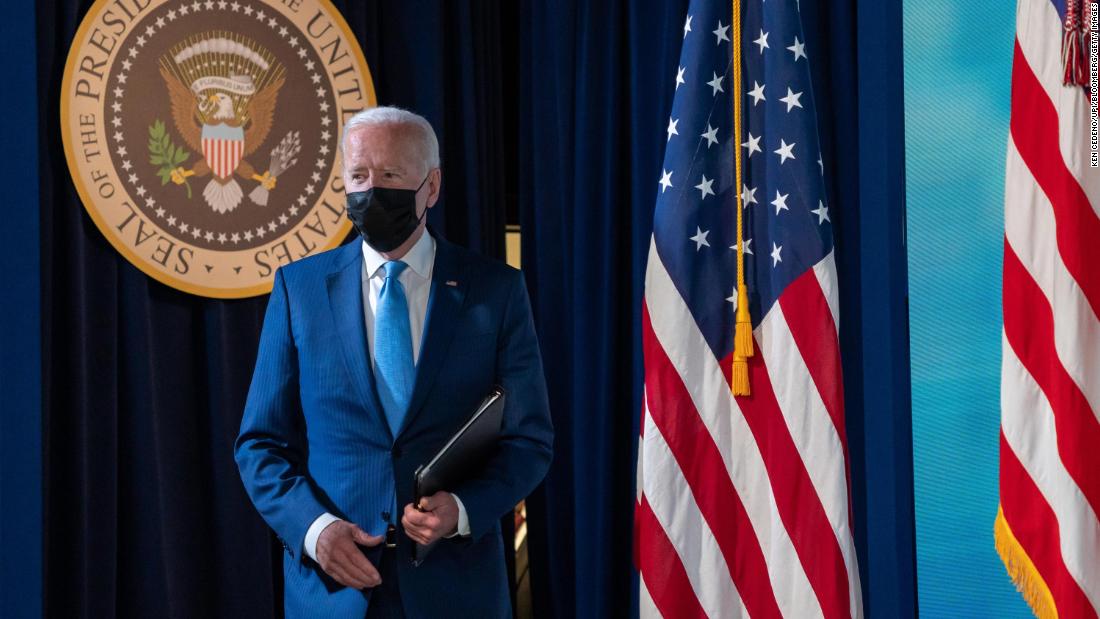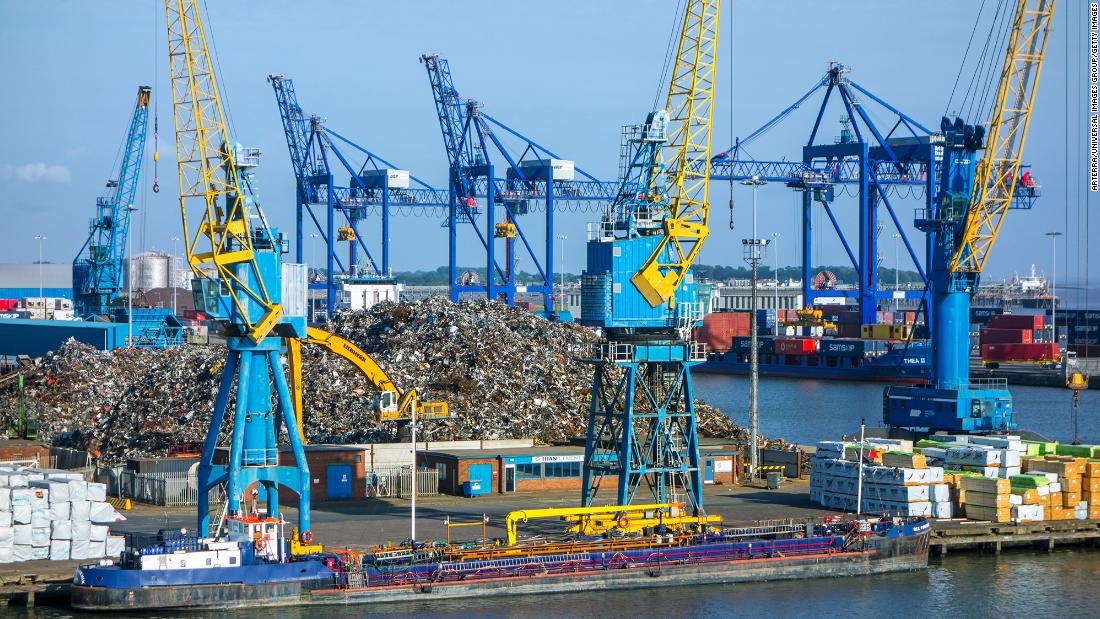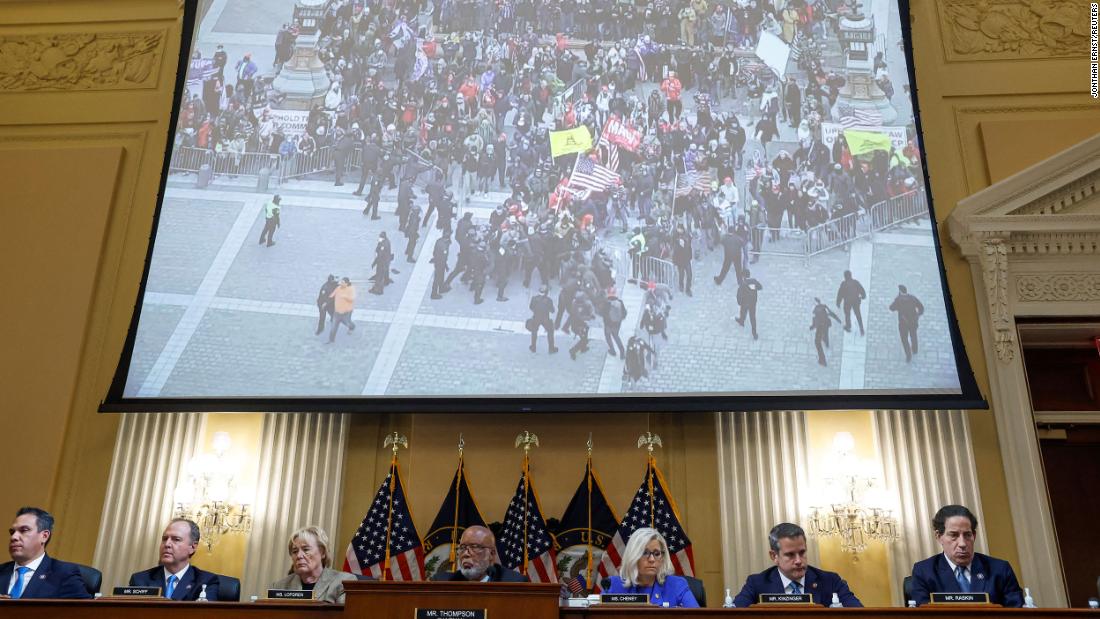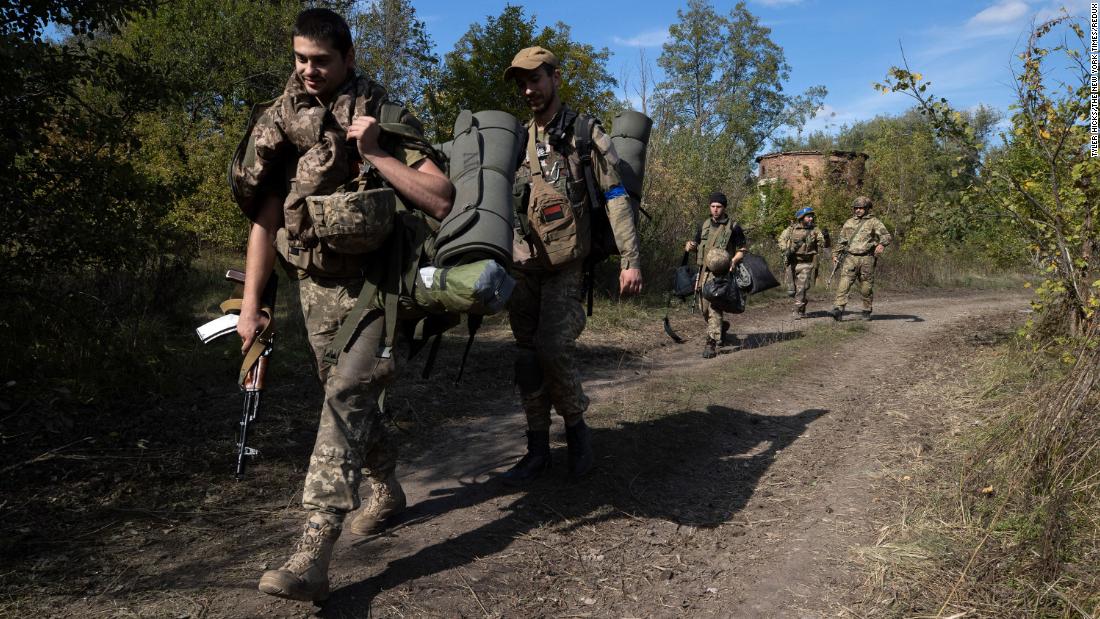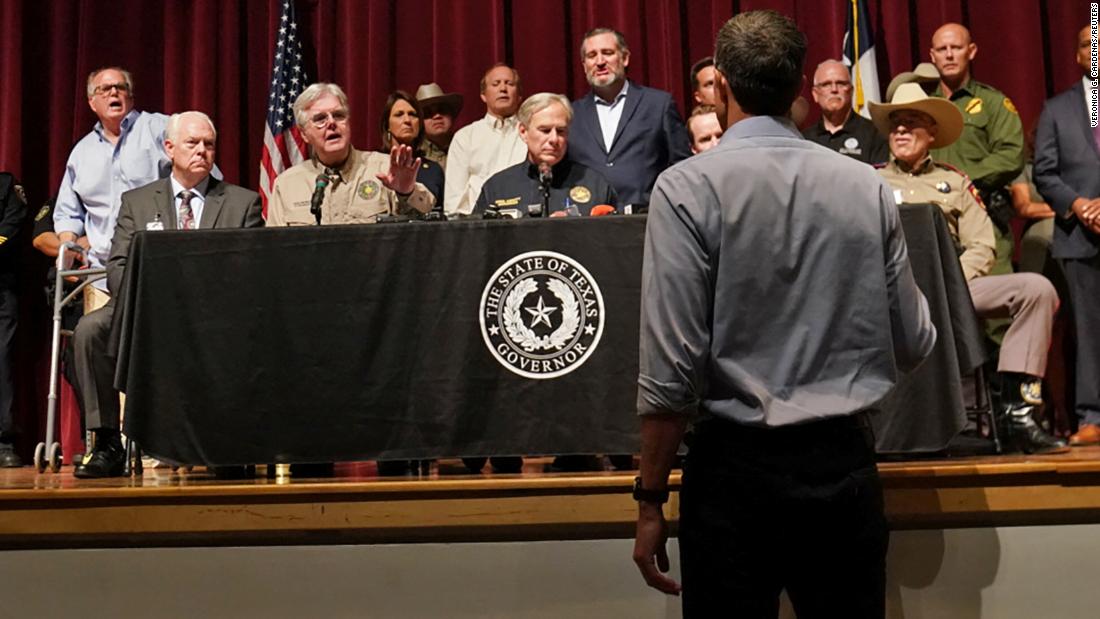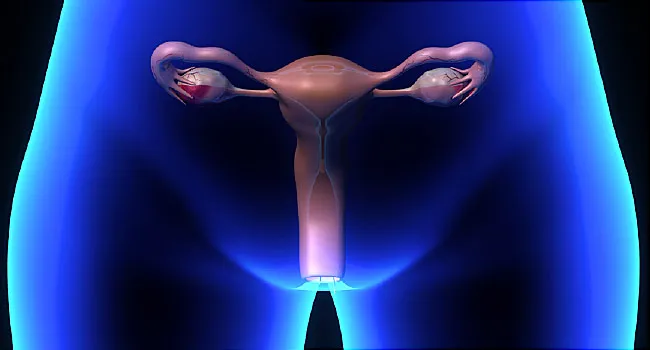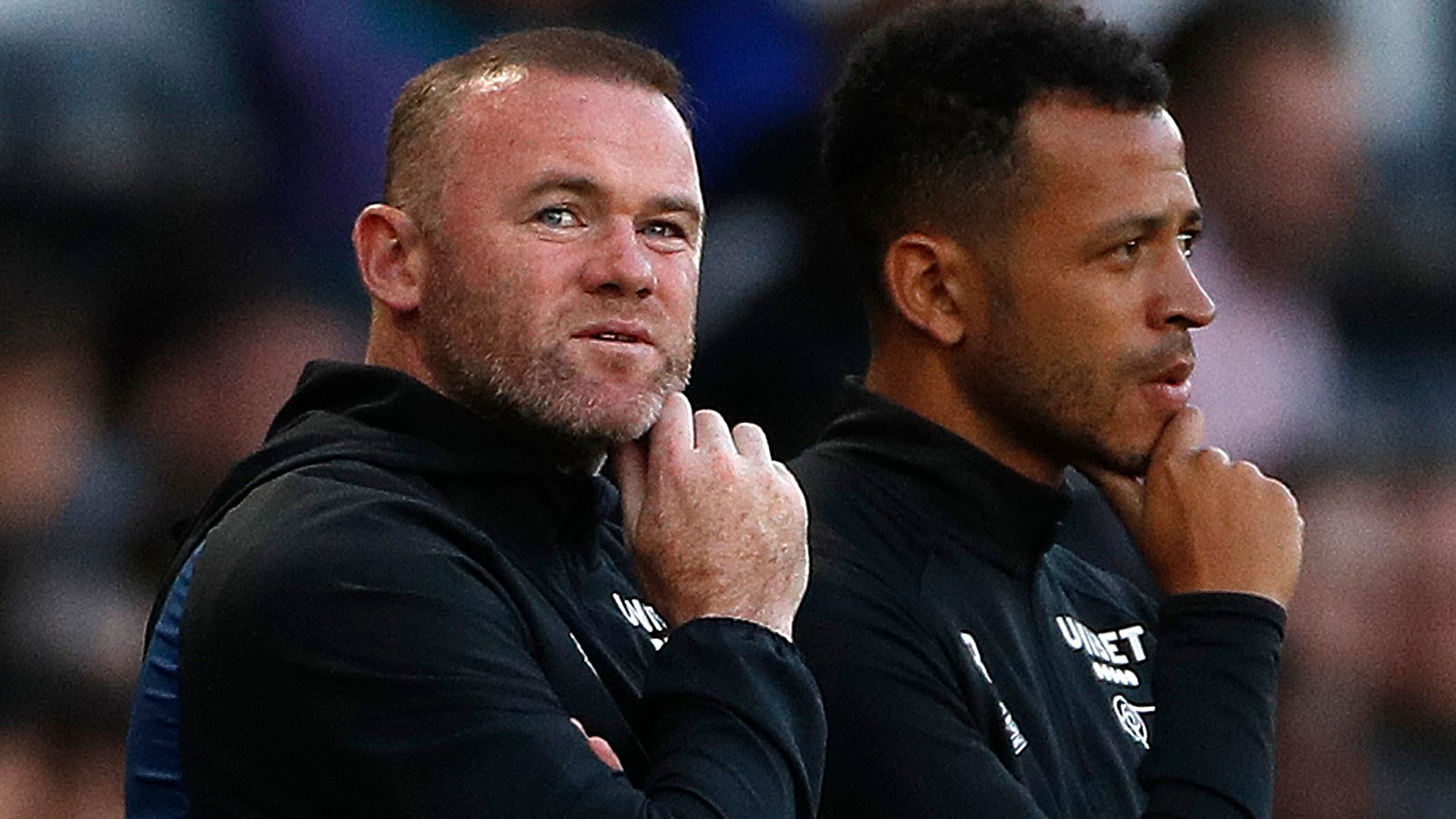Ukraine's top general offers revealing assessment of conflict
11 hr 16 min agoUkrainian generals: The conflict likely "is not going to end anywhere within 2022"From CNN’s Mick KreverPeople stand near a destroyed building following a missile strike in Kharkiv, Ukraine on August 29. (Sergey Bobok/AFP/Getty Images)Ukraine’s top general said that there is “no certain final outcome in view” in the country's battle against Russia and that success will only be possible by increasing the distance that Ukraine can strike with its missiles.“Only by balancing out the weapons’ operating range, thus disturbing the said center of gravity for the enemy, can we get to a turning point in the ongoing war,” Commander-in-Chief of the Armed Forces General Valeriy Zaluzhnyi wrote on Wednesday in a piece co-authored with Lt. Gen. Mykhailo Zabrodskyi, first deputy chairman of the national security, defense, and intelligence committee of Ukraine's parliament. “There is every reason to believe,” they write, that the conflict “is not going to end anywhere within 2022.”In a wide-ranging and revealing analysis published by Ukrainian state media Ukrinform, Zaluzhnyi and Zabrodskyi said that the country needs more weapons to battle Russian forces.“The Armed Forces of Ukraine, in the best-case scenario, are able to employ outdated launchers and strike no farther than the depth of the enemy's operational rear,” they wrote. “If Ukraine succeeds in receiving the appropriate weapons, operational and strategic prospects for 2023 will look totally different. The very threat of the Ukrainian Armed Forces employing means of destruction of the appropriate range will force Russia to reconsider the nature, course, and outcome of the ongoing confrontation.”As an example, they cited Ukraine’s strikes on Russian bases in Crimea last month. This is believed to be the most explicitly Ukrainian military leaders have publicly acknowledged the strikes on Crimea.“This was done by a series of successful missile strikes on the enemy's Crimea-based air bases, first of all, the Saki airfield. The task of the Armed Forces of Ukraine for 2023 is to make these experiences even sharper and more tangible for the Russians and for other occupied regions, despite the massive distance to the targets,” they wrote. A Ukrainian artillery unit fires a rocket launcher near a frontline position in Donetsk region on August 27. (Antatolii Stepanov/AFP/Getty Images)They also said that acquiring more-capable weapons systems from foreign allies can only be a solution as a “transition period,” and that Ukraine must better develop a domestic production capability.Since the start of the war, they believe, two factors have most hindered Ukraine’s efforts to get more weaponry from allied countries: a “misconception about the scale of the Russo-Ukrainian war” and “the direct threat of the use by Russia, under certain circumstances, of tactical nuclear weapons,” which would threaten all of Europe. The generals are realistic about Ukraine’s immediate military challenges, saying that “this will be a long conflict, bringing human losses and massive expenses, with no certain final outcome in view.”They also noted that Donetsk region, the cities of Mykolaiv and Odesa, and even the capital of Kyiv are still vulnerable to capture by the Russians. 12 hr 29 min agoGerman chancellor pledges continued military support in call with Ukrainian president From CNN's Inke Kappeler and Sugam Pokharel German Chancellor Olaf Scholz speaks on September 7 in Berlin, Germany. (Sean Gallup/Getty Images)German Chancellor Olaf Scholz stressed to his Ukrainian counterpart Volodymyr Zelensky in a phone call Wednesday that Berlin would continue to support Kyiv not only militarily, but also politically, financially and humanitarianly, according to a German readout of the call. Scholz and Zelensky exchanged views on Ukraine's military, humanitarian and economic situation and possibilities for further concrete support, including in reconstruction, the readout said. Scholz also informed Zelensky about the “intensive preparations” for an international conference on Ukraine reconstruction in Berlin on Oct. 25 this year. Both the leaders agreed that the safety and protection of the Zaporizhzhia nuclear power plant were of “utmost importance” and supported measures recommended in a report published Tuesday by the International Atomic Energy Agency (IAEA). The IAEA in the report called for the "immediate establishment of a nuclear safety and security protection zone" around the nuclear power plant. "There is an urgent need for interim measures to prevent a nuclear accident arising from physical damage caused by military means," the IAEA wrote in its report. 13 hr 31 min agoIt's 7:30 p.m. in Ukraine. Catch up here on the latest developments in the war. From CNN staff Ukraine is considering shutting down the Zaporizhzhia nuclear power plant, according to a top nuclear inspector, while officials say troops are looking to retake Kherson by the end of the year. These are Wednesday
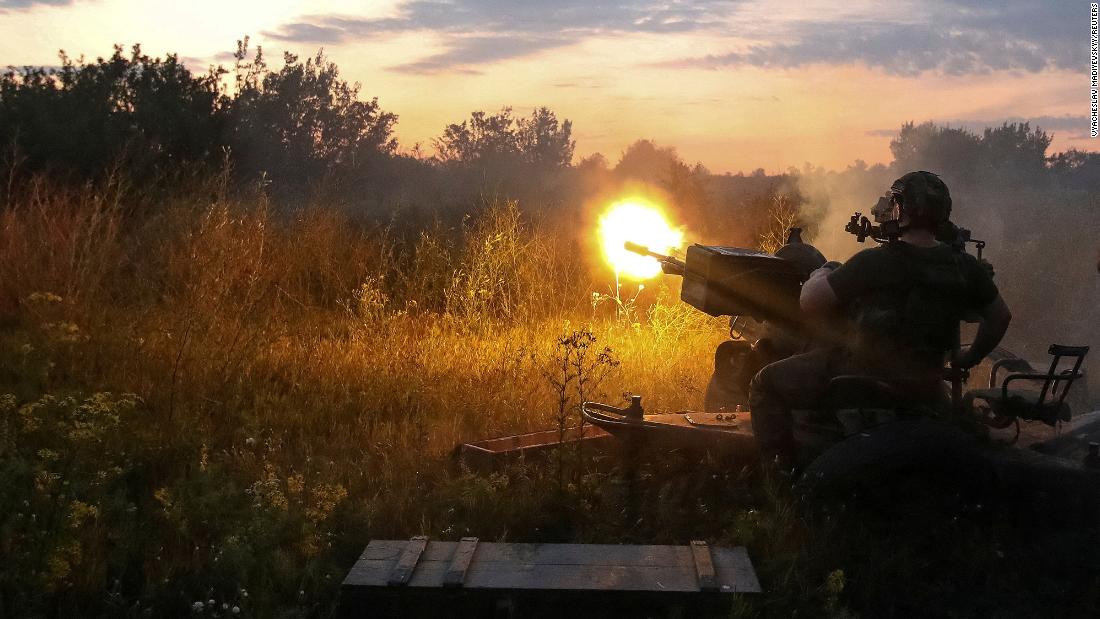
Ukrainian generals: The conflict likely "is not going to end anywhere within 2022"
From CNN’s Mick Krever
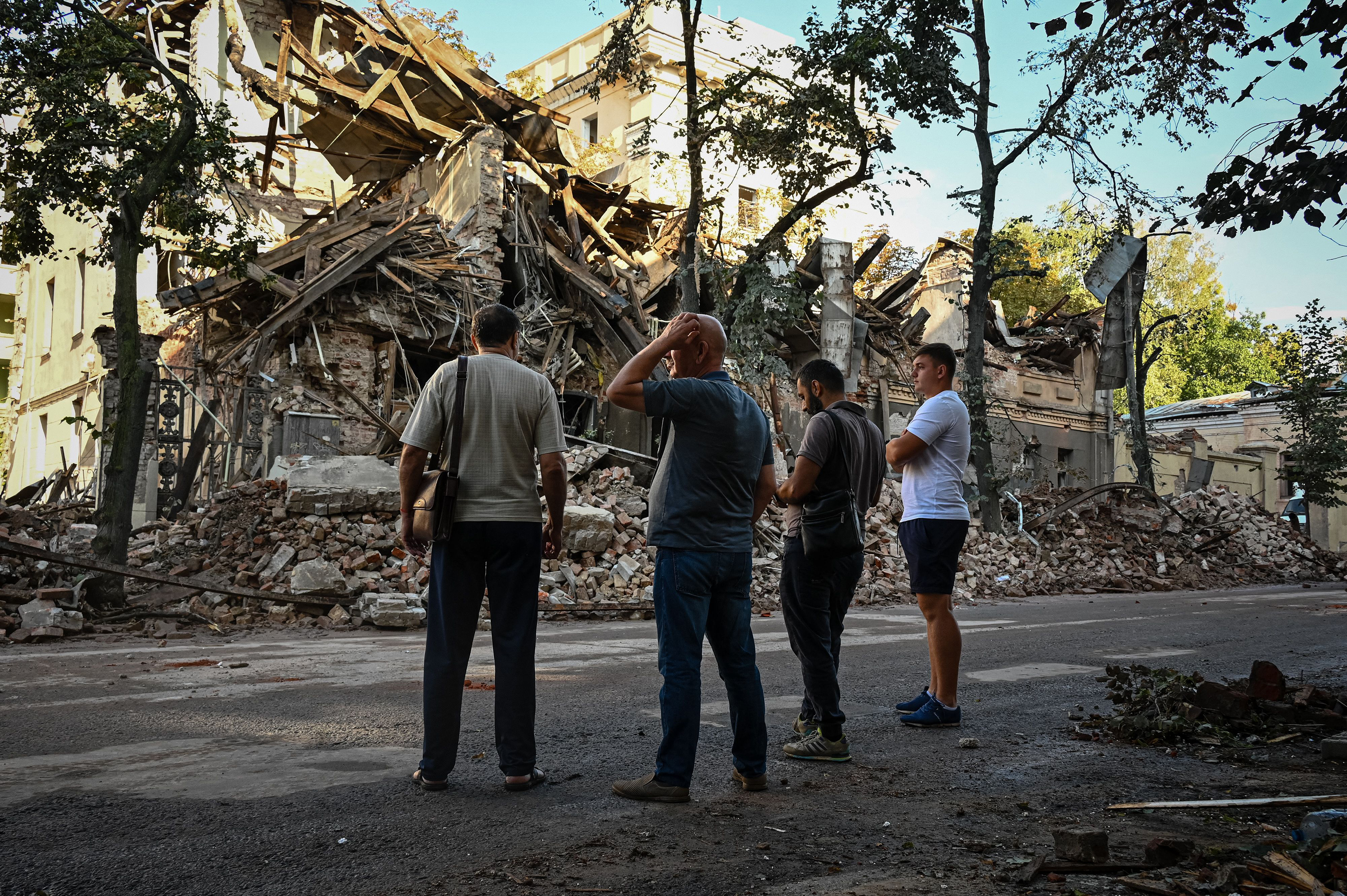
Ukraine’s top general said that there is “no certain final outcome in view” in the country's battle against Russia and that success will only be possible by increasing the distance that Ukraine can strike with its missiles.
“Only by balancing out the weapons’ operating range, thus disturbing the said center of gravity for the enemy, can we get to a turning point in the ongoing war,” Commander-in-Chief of the Armed Forces General Valeriy Zaluzhnyi wrote on Wednesday in a piece co-authored with Lt. Gen. Mykhailo Zabrodskyi, first deputy chairman of the national security, defense, and intelligence committee of Ukraine's parliament.
“There is every reason to believe,” they write, that the conflict “is not going to end anywhere within 2022.”
In a wide-ranging and revealing analysis published by Ukrainian state media Ukrinform, Zaluzhnyi and Zabrodskyi said that the country needs more weapons to battle Russian forces.
“The Armed Forces of Ukraine, in the best-case scenario, are able to employ outdated launchers and strike no farther than the depth of the enemy's operational rear,” they wrote. “If Ukraine succeeds in receiving the appropriate weapons, operational and strategic prospects for 2023 will look totally different. The very threat of the Ukrainian Armed Forces employing means of destruction of the appropriate range will force Russia to reconsider the nature, course, and outcome of the ongoing confrontation.”
As an example, they cited Ukraine’s strikes on Russian bases in Crimea last month. This is believed to be the most explicitly Ukrainian military leaders have publicly acknowledged the strikes on Crimea.
“This was done by a series of successful missile strikes on the enemy's Crimea-based air bases, first of all, the Saki airfield. The task of the Armed Forces of Ukraine for 2023 is to make these experiences even sharper and more tangible for the Russians and for other occupied regions, despite the massive distance to the targets,” they wrote.
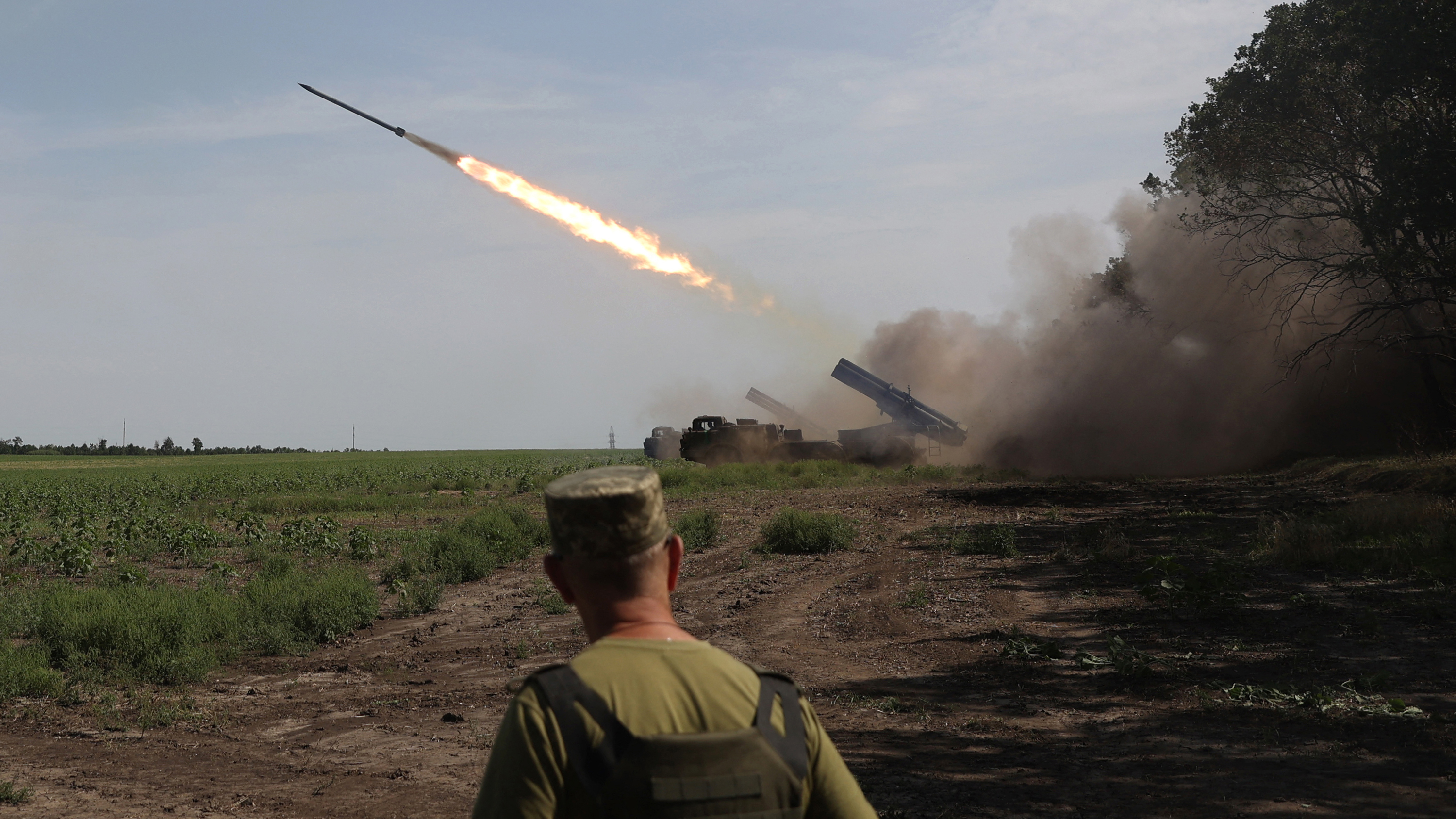
They also said that acquiring more-capable weapons systems from foreign allies can only be a solution as a “transition period,” and that Ukraine must better develop a domestic production capability.
Since the start of the war, they believe, two factors have most hindered Ukraine’s efforts to get more weaponry from allied countries: a “misconception about the scale of the Russo-Ukrainian war” and “the direct threat of the use by Russia, under certain circumstances, of tactical nuclear weapons,” which would threaten all of Europe.
The generals are realistic about Ukraine’s immediate military challenges, saying that “this will be a long conflict, bringing human losses and massive expenses, with no certain final outcome in view.”
They also noted that Donetsk region, the cities of Mykolaiv and Odesa, and even the capital of Kyiv are still vulnerable to capture by the Russians.
German chancellor pledges continued military support in call with Ukrainian president
From CNN's Inke Kappeler and Sugam Pokharel
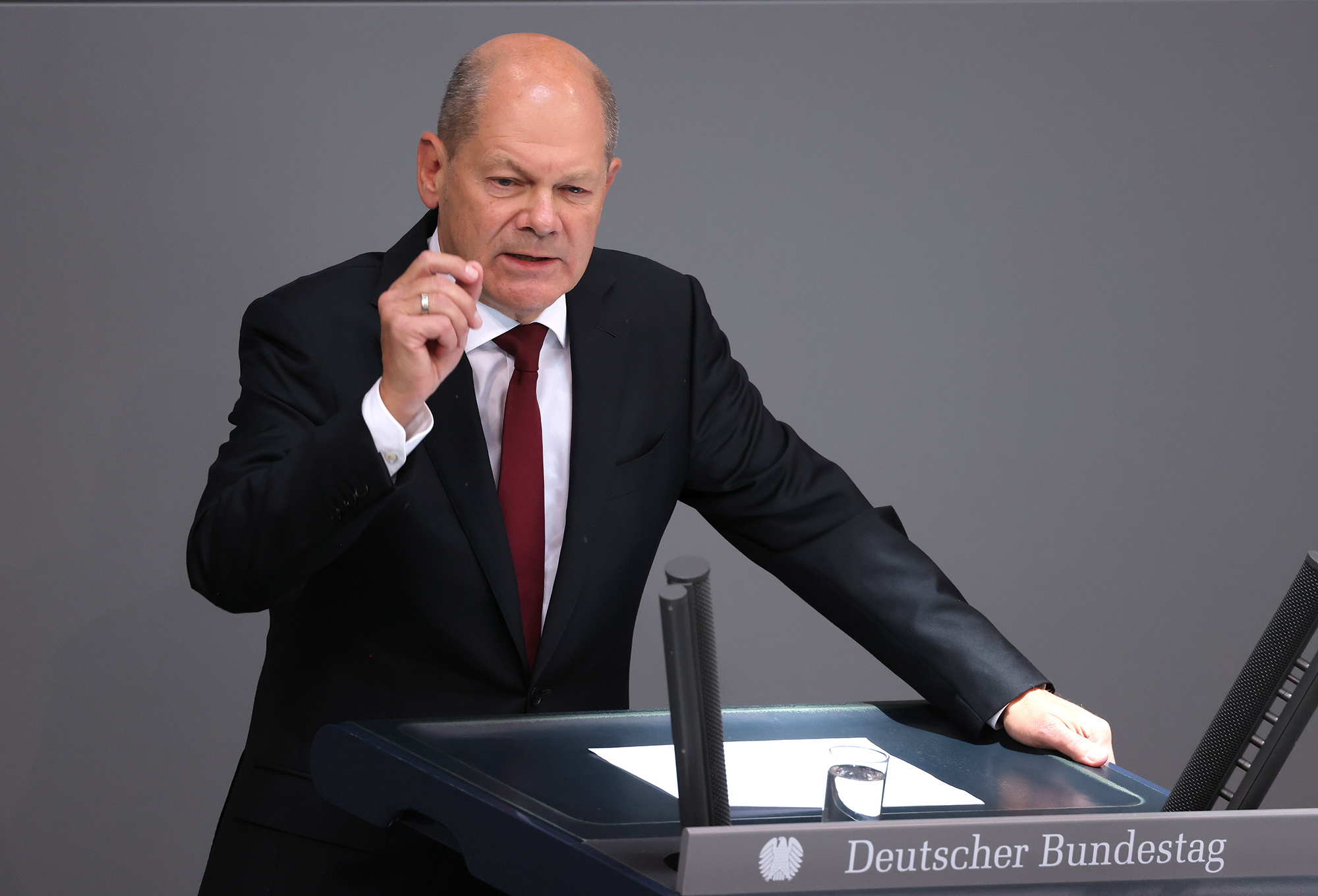
German Chancellor Olaf Scholz stressed to his Ukrainian counterpart Volodymyr Zelensky in a phone call Wednesday that Berlin would continue to support Kyiv not only militarily, but also politically, financially and humanitarianly, according to a German readout of the call.
Scholz and Zelensky exchanged views on Ukraine's military, humanitarian and economic situation and possibilities for further concrete support, including in reconstruction, the readout said.
Scholz also informed Zelensky about the “intensive preparations” for an international conference on Ukraine reconstruction in Berlin on Oct. 25 this year.
Both the leaders agreed that the safety and protection of the Zaporizhzhia nuclear power plant were of “utmost importance” and supported measures recommended in a report published Tuesday by the International Atomic Energy Agency (IAEA).
The IAEA in the report called for the "immediate establishment of a nuclear safety and security protection zone" around the nuclear power plant.
"There is an urgent need for interim measures to prevent a nuclear accident arising from physical damage caused by military means," the IAEA wrote in its report.
It's 7:30 p.m. in Ukraine. Catch up here on the latest developments in the war.
From CNN staff
Ukraine is considering shutting down the Zaporizhzhia nuclear power plant, according to a top nuclear inspector, while officials say troops are looking to retake Kherson by the end of the year.
These are Wednesday's latest developments in the war:
Zaporizhzhia nuclear power plant: Ukraine is considering shutting down the Zaporizhzhia plant — the largest in Europe — due to the deteriorating security situation, according to the country's chief state inspector for nuclear and radiation safety.
Russia and Ukraine continue to blame each other for shelling at and around the plant after the International Atomic Energy Agency said in a report yesterday that it was “gravely concerned” about the situation on the ground.
Ukraine sets its sights on Kherson: The last week has seen the most ambitious ground assaults by the Ukrainians since the beginning of Russia's invasion, and both US and Ukrainian officials said that Ukrainian forces aim to take back most of the southern Russian-occupied region of Kherson by the end of 2022.
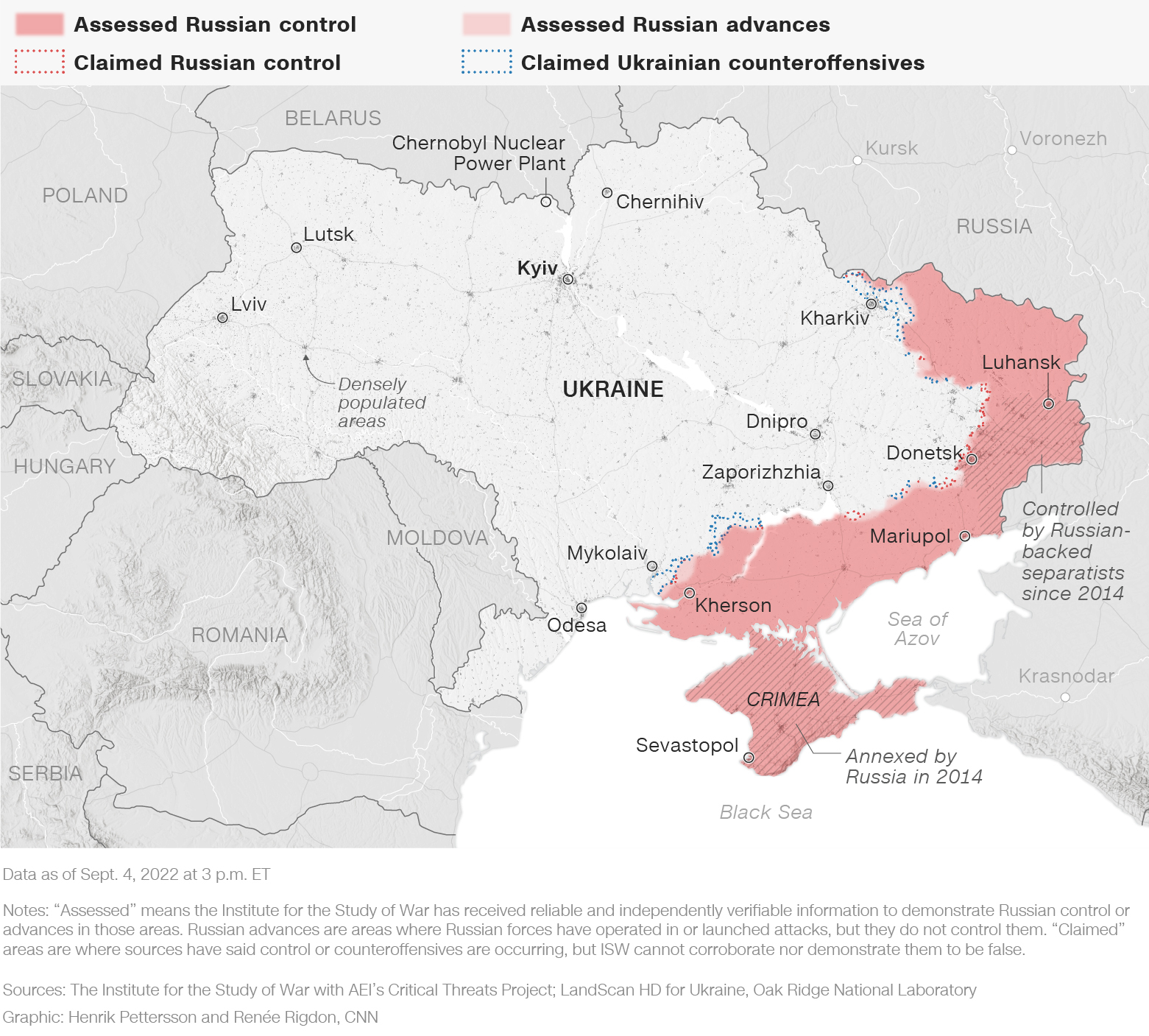
Proposal to reduce electricity: European Commission President Ursula von der Leyen made a series of proposals, including a “mandatory target for reducing electricity use at peak hours.”
The proposals were introduced with the goal of helping European citizens deal with rising energy costs as Russia’s actions in “actively manipulating the gas market” and the effects of climate change cause prices to surge.
US analyzing long-term support: The Pentagon is preparing detailed analysis and working out how to support Ukraine's military in the medium- and long-term, including after the war with Russia has ended, according to three defense officials. The US has provided billions of dollars in military aid to Ukraine since Russia invaded in February.
Ukrainian forces near Kharkiv: Ukrainian forces are advancing to the east of Ukraine's second-largest city Kharkiv, with recent social media footage geolocated by CNN showing soldiers in the town of Volokhiv-Yar, which was occupied by Russian forces until recently. If Ukrainian forces are able to consolidate their presence in Volokhiv-Yar, they could encircle Russian troops in the neighboring town of Balakliya.
CNN has geolocated videos showing Ukrainian forces on the outskirts of Balakliya. There are indications fighting is ongoing in the area.
Putin makes claims on grain and war gains: Russian President Vladimir Putin claimed that Russia has “lost nothing” in its invasion of Ukraine in a speech on Wednesday. But based on downgraded intelligence, the US believes that Russia is facing "severe" shortages of military personnel in Ukraine.
He also used misleading figures to claim that low- and middle-income countries are receiving a fraction of the Ukrainian grain exports they were expecting under the landmark UN-brokered Black Sea Grain Initiative. In a statement to CNN, the United Nations said that under the Black Seas Initiative, roughly 30% of “grains and other foodstuffs” have made it to low- and lower-middle-income countries, or roughly 700,000 metric tons.
Austria will freeze electricity prices from December until June 2024
From CNN’s Inke Kappeler in Berlin
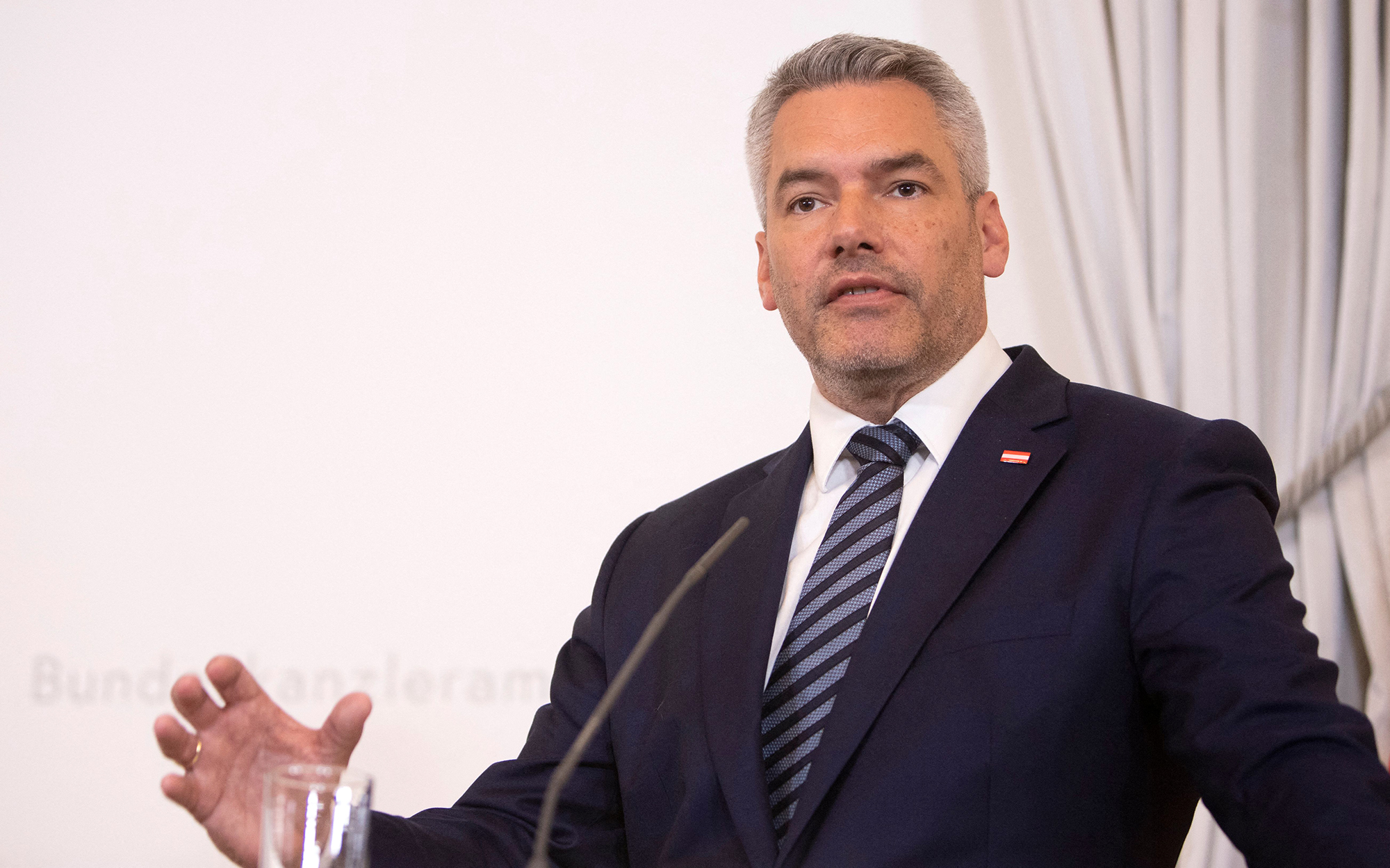
The Austrian government on Wednesday announced plans for a cap on electricity costs starting in December to tackle the rise in energy prices, partly triggered by Russia's invasion of Ukraine.
The price cap “is effective for about 80 percent of the average consumption of a household and massively dampens the cost increase. For consumption beyond 2900 kWh, the market price must be paid. This also provides an incentive to save electricity,“ Chancellor Karl Nehammer said ahead of a Council of Ministers meeting.
The electricity cost freeze is expected to take effect starting on Dec. 1 and will remain in force until June 30, 2024, and should relieve a household of an average of around 500 euros ($497) per year, according to a Council of Ministers' news release.
The government aims to pass the plan in parliament “as quickly as possible, probably in October,“ it said.
Ukraine is considering shutting down Zaporizhzhia nuclear power plant, chief nuclear inspector says
From CNN's Yulia Kesaieva and Vasco Cotovio
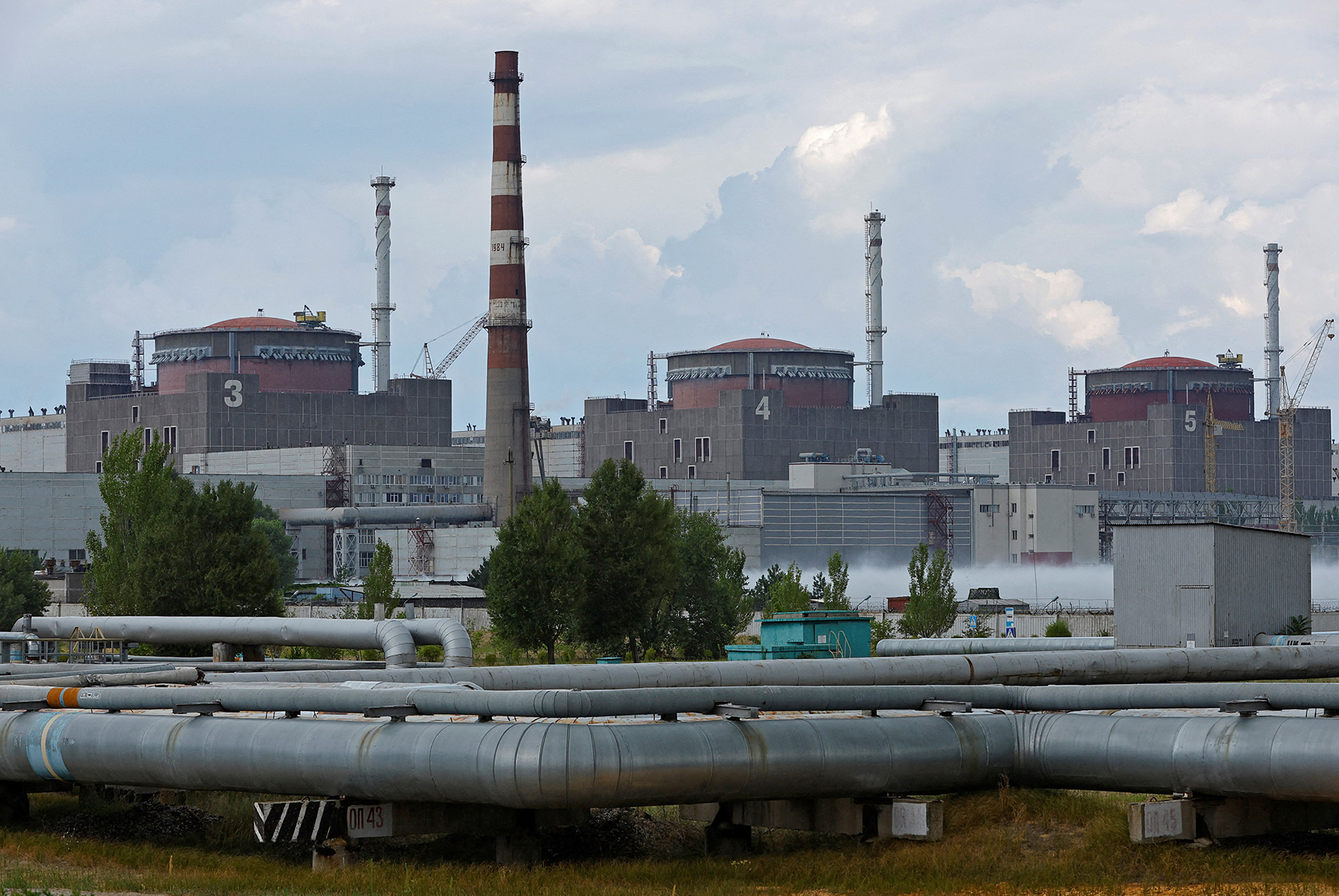
Ukraine is considering shutting down the Zaporizhzhia nuclear power plant due to the deteriorating security situation, said Oleh Korikov, the chief state inspector for nuclear and radiation safety of Ukraine.
“If conditions requiring the plant to be shut down arise, the plant and power unit No. 6 will be shut down,” Korikov said on Wednesday.
Zaporizhzhia is the largest nuclear power station in Europe.
"The continued deterioration of the situation, the prolonged lack of power supply from an external source of electricity will force us to deploy standby diesel generators, and it is extremely difficult to top up the diesel fuel supply during the war,” he added.
Korikov said maintaining the diesel generators running would not be sustainable.
For context: In an interview last month, Energoatom CEO Petro Kotin explained why diesel generators are not a sustainable alternative.
Diesel generators are backups to cool fuel and keep things operational, but there are caveats to using them for an indefinite time and it's a "dangerous" situation to be in, he explained.
"Reliability questions could be an issue ... because in this case, they could be required to work for an indefinite time, and they have limited capacity to constantly be in work mode," Kotin added.
Korikov's concerns are along the same lines as tensions continue at the plant.
“Four huge diesel fuel tanks are needed per day,” Korikov explained. “Potentially, we can find ourselves in a situation with no diesel fuel; it can give rise to an accident, damaging the active zone of reactors and releasing radioactive products into the environment. It will not only affect the territory of Ukraine but also produce cross-border effects.”
Currently, the plant “generates electricity and supplies it for its own needs” through an exceptional process called islanding where the plant — although disconnected from a power grid — uses its own energy to power cooling systems, according to Korikov.
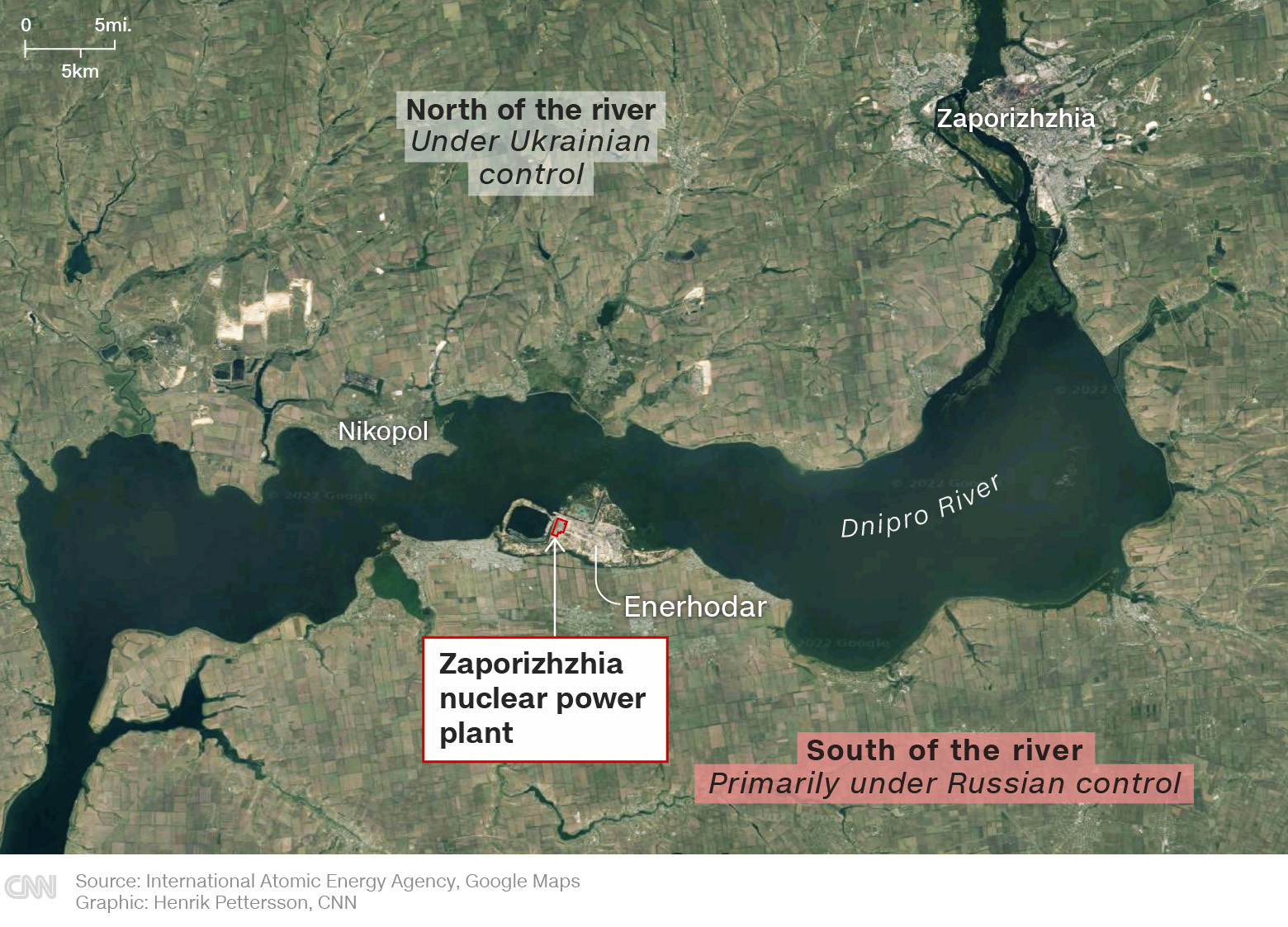
Officials say Ukrainian forces seek to retake Kherson by the end of 2022
From CNN's Jim Sciutto and Tim Lister
One week into a new counteroffensive, Ukrainian forces are making gains in the south, with the ambitious goal of taking back most of the Russian-occupied region of Kherson by the end of the year, senior US officials and Ukrainian officials tell CNN.
The last week has seen the most ambitious ground assaults by the Ukrainians since the beginning of the invasion, following sustained attacks on command posts, ammunition stores, and fuel reserves far behind the front lines, according to geolocation of video and satellite imagery.
The US has observed Ukrainian forces achieve some success in attacking Russian supply lines, with the intention of cutting off and isolating Russian troops currently deployed west of the Dnipro River, according to a senior US official.
“What we’ve seen in the Kherson region first is some continued offensive operations by the Ukrainians,” Pentagon press secretary Air Force Brig. Gen. Pat Ryder told reporters. “They continue to make some forward movement. We are aware that they have retaken some villages.”
Ryder also said that the US has seen “some offensive Russian activity … near Bakhmut.”
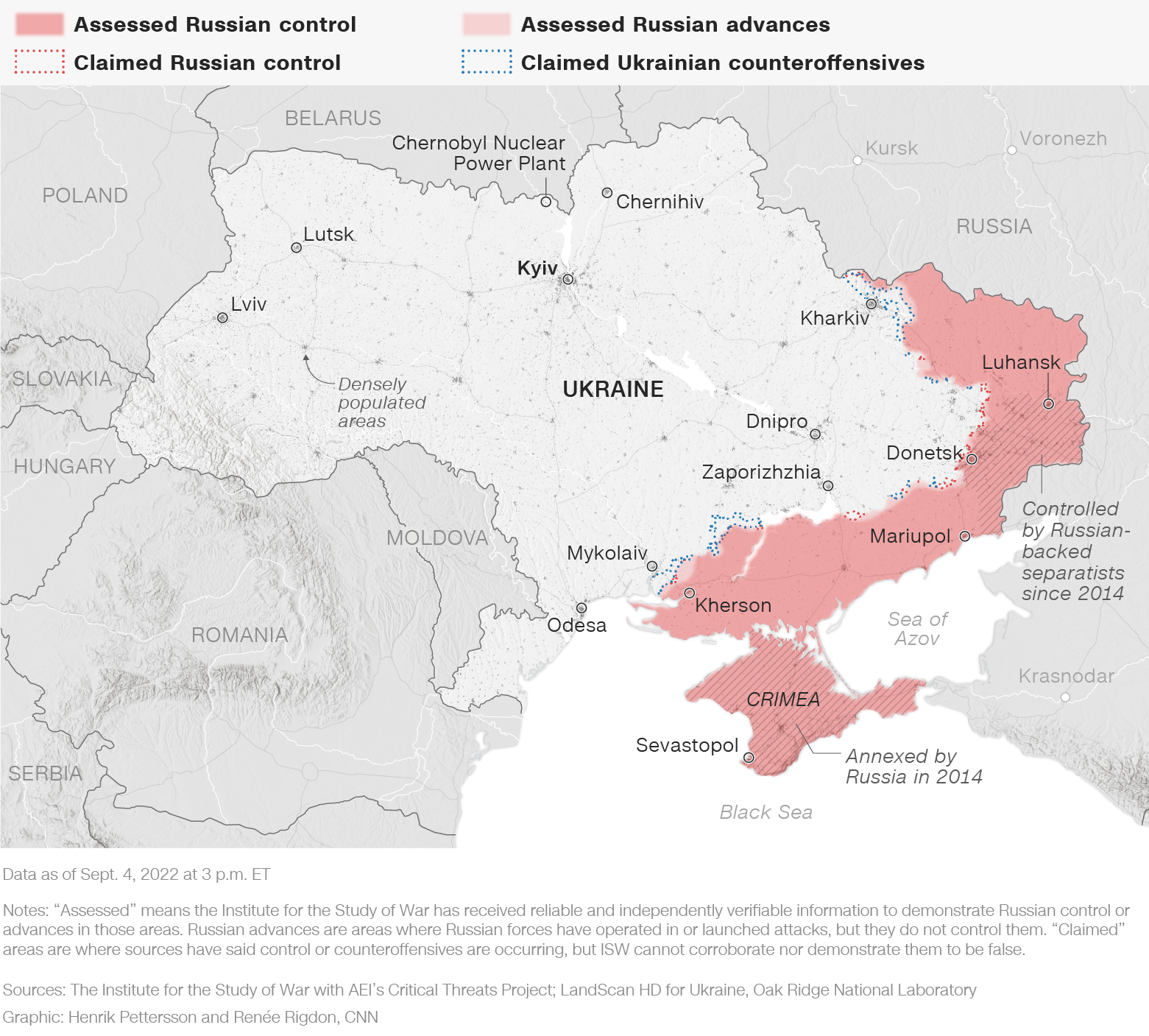
According to Ukrainian officials, the goal is to take at least all territory north or west of the Dnipro River, including not only the city of Kherson but also Nova Kakhovka, site of an important hydroelectric plant as well as the canal that supplies Crimea with much of its water.
The current offensive in the south is broad-based – extending more than 100 miles wide – to prevent Russian units from concentrating on one point. Additionally, there has been an uptick in sabotage operations and attacks on pro-Russian officials in occupied areas.
US officials acknowledge the Ukrainian goal of recapturing Kherson by the end of 2022 is ambitious but remains possible if Ukraine continues to make progress in its current operations.
Read more:
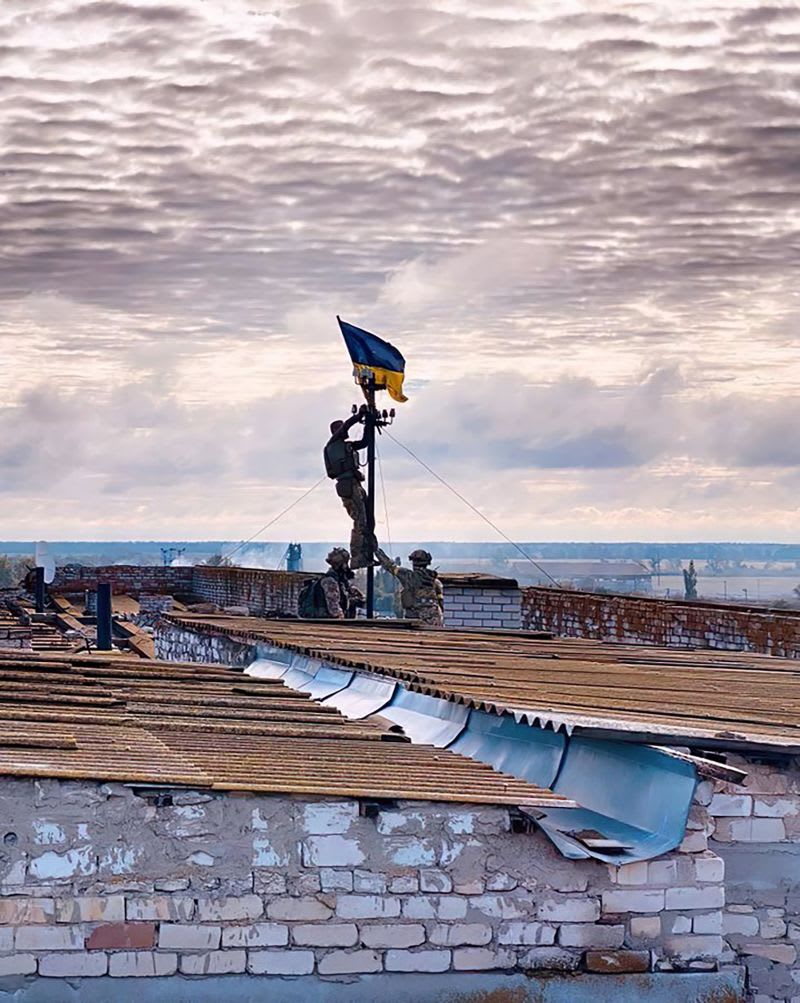
European Commission proposes reduction on electricity during peak hours to help with rising costs
From CNN’s James Frater, Anna Chernova and Eleanor Pickston
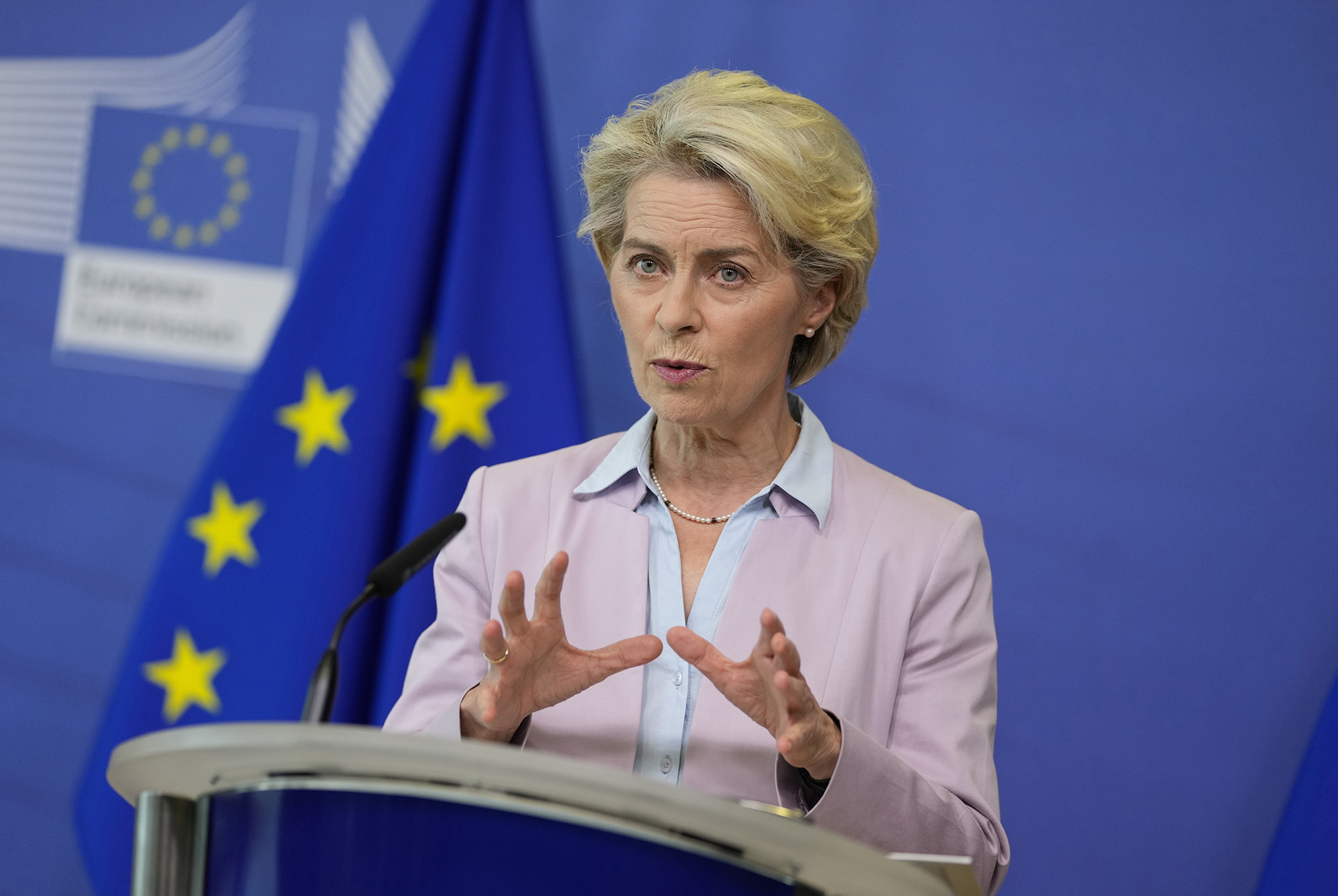
President of the European Commission Ursula von der Leyen proposed wide-ranging new measures Wednesday, including a “mandatory target for reducing electricity use at peak hours.”
The proposals were introduced with the goal of helping European citizens deal with rising energy costs as Russia’s actions in “actively manipulating the gas market” and the effects of climate change cause prices to surge.
Speaking to journalists in Brussels, von der Leyen said that while the European Union has “very much increased our preparedness and we have weakened the grip that Russia had on our economy and our continent” over the past six months.
She warned that “Russian manipulation of the gas market has spillover effects on the electricity market” and will confront Europe “with astronomic electricity prices for households and companies.”
She presented five measures with the aim of supporting “vulnerable consumers and businesses.”
As part of the measures, von der Leyen announced
“The objective here is very clear,” she said. “We must cut Russia's revenues, which Putin uses to finance this atrocious war against Ukraine.”
Further measures include a “mandatory target for reducing electricity use at peak hours” to help “flatten the peaks and a cap on energy revenues for companies using renewable sources.
Additionally, the commission will “propose a solidarity contribution for fossil fuel companies” that would see “unexpected profits” from energy companies being used support consumers and businesses.
The five proposed measures will be put to member states on Friday, according to von der Leyen.
What Putin says: Earlier Wednesday, Russian President Vladimir Putin hit out at the West’s proposed price caps on Russian energy, threatening to cut off gas and oil supplies if they are imposed.
“Well, we simply will not comply with them. And we will not supply anything at all if it is contrary to our interests — in this case, economic ones. Neither gas, nor oil, nor coal, nor heating oil — we will not supply anything,” Putin said.
Last week, the G7 nations announced plans to impose a price cap on Russian oil exports.
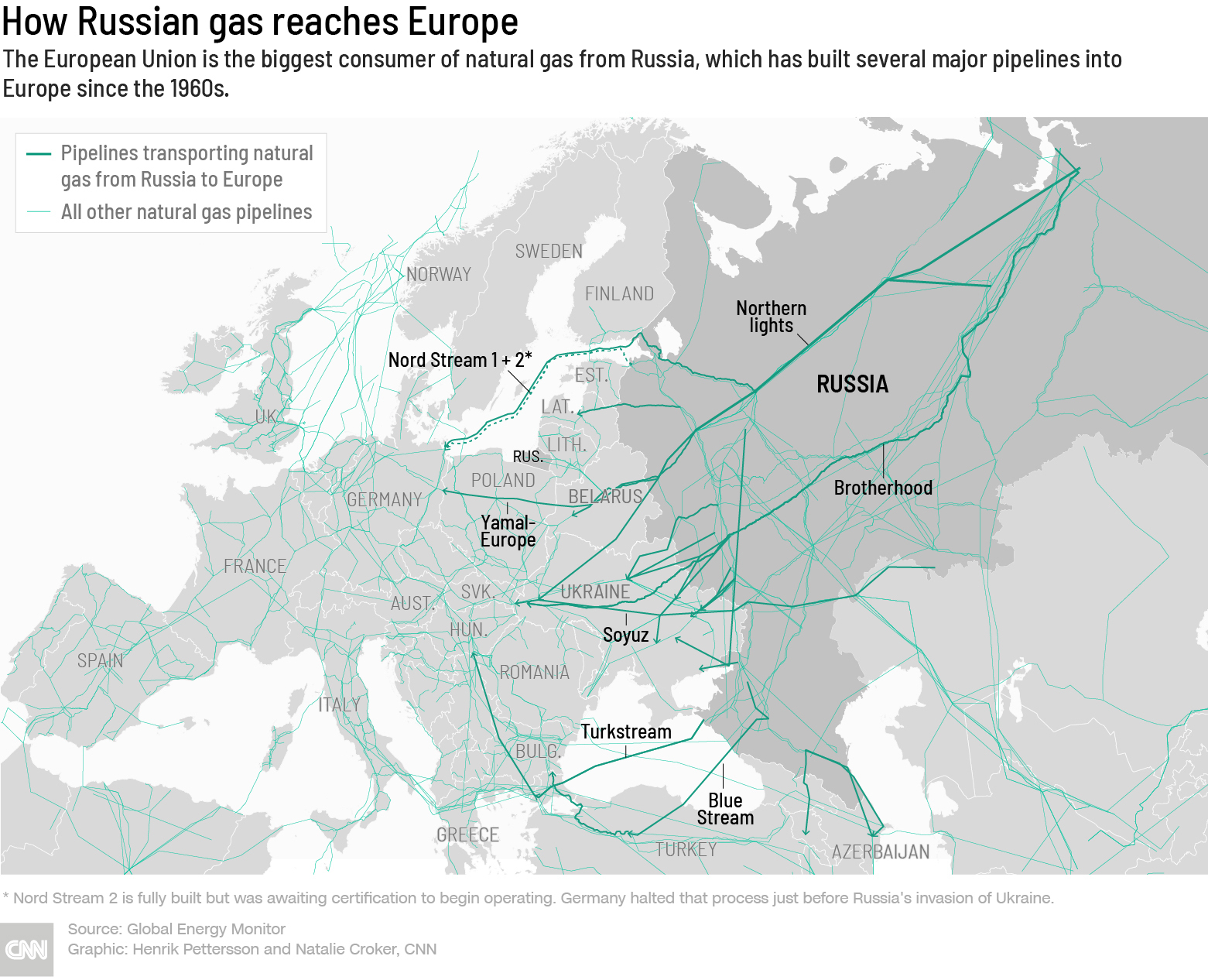
Germany's gas storage is 85% full amid tensions over gas supplies with Russia, chancellor says
From Inke Kappeler in Berlin
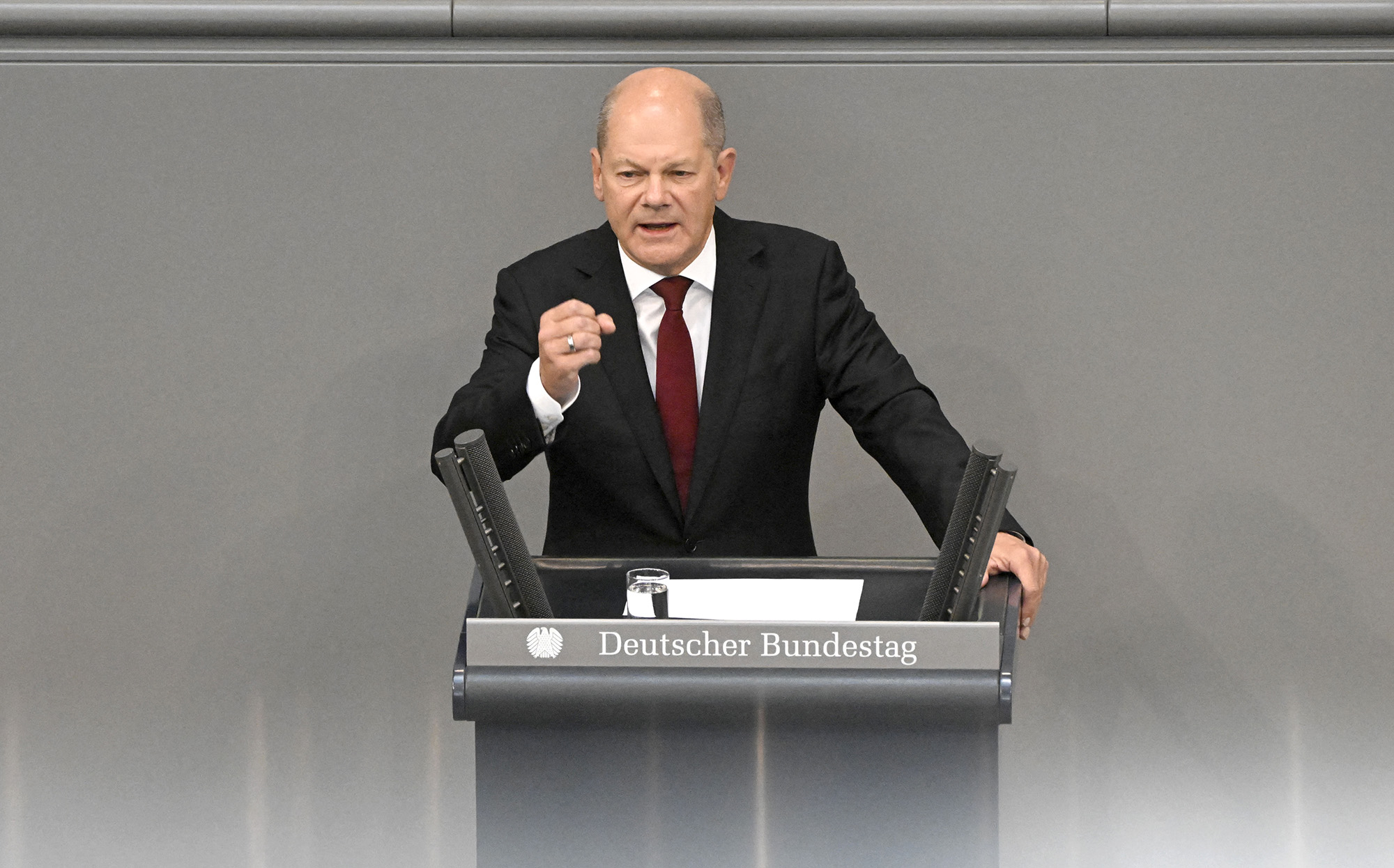
In his budget speech on Wednesday, German Chancellor Olaf Scholz promised to work on lowering prices for energy imports as tensions with Russia continue, saying “the prices for energy supplies must come down."
“Citizens must also be able to pay the prices. And we will take care of that,“ he said.
Scholz said the country’s gas storage facilities were over 85% full at a time when Russia has cut off gas supplies to Germany.
Germany “will probably get through this winter, despite all the tension, due to building liquefied natural gas storage terminals and purchasing gas elsewhere,” he added.
“You'll never walk alone. That is the motto of this government,“ Scholz promised. “I am sure our country will rise above. We will stand together. We will overcome the challenges we are facing now."
Scholz last week said that the country is better prepared for winter "than was foreseeable a few months ago" when it comes to gas supply and that it "can deal quite well with the threats that are coming our way from Russia."
US is analyzing how it can provide long-term support to Ukraine's military, officials say
From CNN's Barbara Starr
The Pentagon is preparing detailed analysis and working out how to support Ukraine's military in the medium- and long-term, including after the war with Russia has ended, according to three defense officials.
The efforts are being led by Chairman of the Joint Chiefs of Staff Gen. Mark Milley and would build on the billions of dollars in military aid the US has given to Ukraine since Russia invaded in February.
The process is at an early stage and a senior defense official said it is looking at the "future of Ukrainian forces," aiming to answer key questions about "what makes sense?" and "what do we want Ukraine to start having in the mid and the long term?" in terms of military support. As well as the current conflict, which is expected to be lengthy, the US is looking, at least, at the next five years after the war is over.
The analysis is being conducted in conjunction with the Ukrainians, and if approved by US President Joe Biden, it could lead to years of future arms sales and the establishment of a long-term military training program by the US. It would be presented to Kyiv as an assessment, but it would provide a clear road map showing how the US believes it should develop its military.
The analysis is expected to "come together in the next month or two," the senior defense official said, emphasizing that Ukraine's views will be central to the final effort. "What's their strategy, what do they want?" they added. The effort will continuously evolve over the next few months as the battlefield shifts and Ukraine's forces advance.
The initial effort could lead to recommendations for weapons and training, depending on the military strategy Ukraine approves. That could ultimately extend US and allied involvement with Ukraine for years to come through long-term, multi-year weapons contracts that could be initially finalized before the end of Biden's first term.
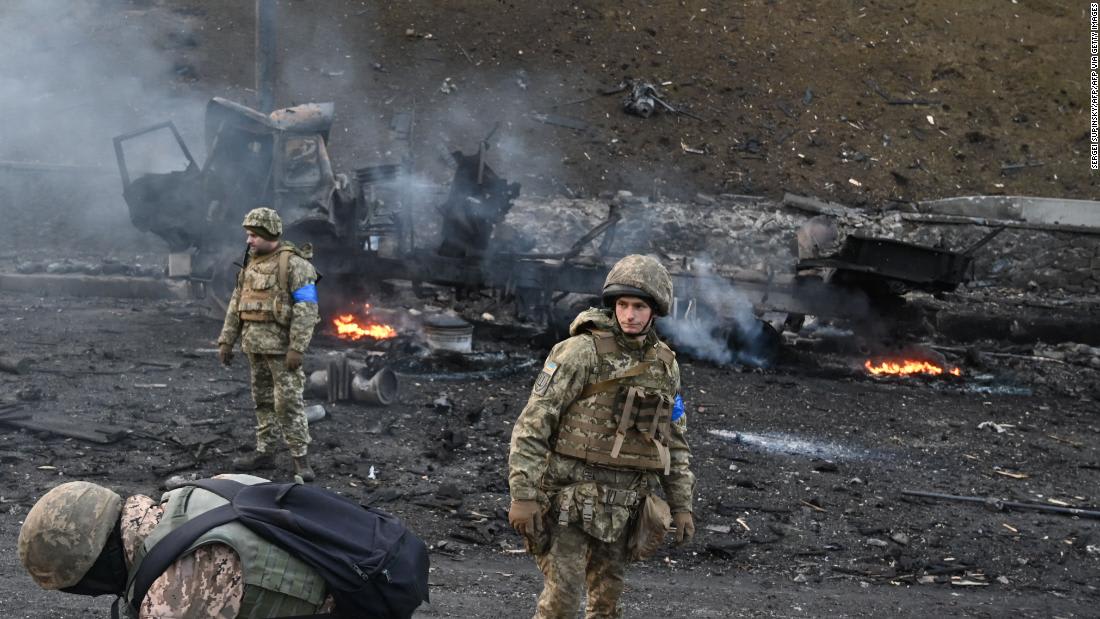

 Landwebs
Landwebs 







